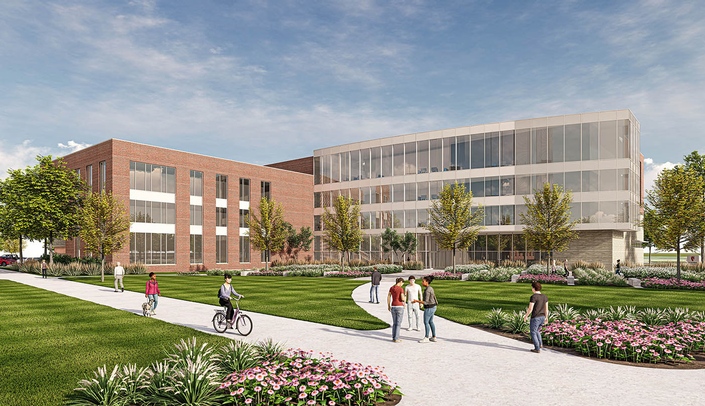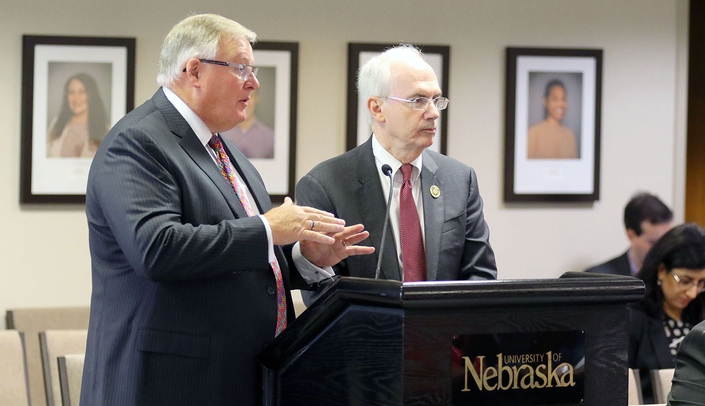The University of Nebraska Board of Regents Thursday approved the program statement and construction budget for phase two of the UNK-UNMC Rural Health Education Building on the University of Nebraska at Kearney campus.
Construction of the $85 million facility is expected to begin in September 2023, with projected completion in July 2025. Thanks to approval from the legislature, the proposed facility received $50 million in federal American Rescue Plan Act funding for capital construction, plus $10 million for iEXCEL technology startup costs. Further, the legislature has committed the necessary sustainable operational funds to support faculty and staff. The university has committed to raising $35 million in private funding for construction.
"Adding a second health science focused building at UNK creates opportunities for students who want to both pursue — and practice — their health careers closer to home, which help us build a stronger rural workforce, increase access to rural care and help communities thrive," said Jeffrey P. Gold, MD, UNMC chancellor. "In short, it will transform lives for generations."
 |
| A rendering of the UNK-UNMC Rural Health Education Building to be built on the University of Nebraska at Kearney campus |
Chancellor Gold presented an overview of the current distribution of health care workforce across the 93 counties of Nebraska, as well as future projections of need. The ongoing impact of the COVID-19 pandemic, as well as other factors, demonstrates an increasing gap, particularly in rural communities.
"It is clear that there are many underserved rural and urban communities and that the UNMC colleges continue to educate a critically important proportion of this workforce," Dr. Gold said.
University leaders say the goal is to address urgent needs in rural Nebraska’s health care workforce; 14 counties in the state, for example, do not have a primary care physician. Much of the data presented was derived from UNMC College of Public Health workforce assessments.
UNK Chancellor Doug Kristensen called the project "fundamental" to rural Nebraska and the survival of many communities. "Only the university can solve this problem," he said. "We’re on the verge of doing something that nobody else in the United States is doing, and that’s educating health care workers and professionals in rural areas."
The project expands on an already successful collaboration between UNK and UNMC, phase one of the $19 million Health Science Education Complex (HSEC), which opened in 2015 and offers nursing and a variety of allied health profession training programs on the UNK campus. Phase two will enable UNMC to expand the presence of its allied health and nursing programs, launching new programs that will train physicians, pharmacists and public health professionals.
The project advances UNMC’s mission — as Nebraska’s only public academic health science center — to train and build the state’s health care workforce. It also complements UNMC’s Rural Health Opportunities program and Kearney Health Opportunities Program pathway programs, which attract talented students from rural Nebraska who are committed to practicing in rural areas following their education and training.
The new facility will include state-of-the-art classrooms, extensive simulation and clinical skills laboratories for pre-clinical education and complex clinical scenarios and simulated primary care spaces. It will bring new options to the UNK campus, including medicine, medical nutrition, genetic counseling and respiratory care — all high-need areas in rural Nebraska. A Master of Health Administration degree will be added to complement UNK’s undergraduate program, and discussion is under way for the UNMC College of Pharmacy to offer a joint degree program with UNK.
Targeted renovation is planned for the existing HSEC facility, which will provide expanded anatomy, rehab and musculoskeletal labs.
